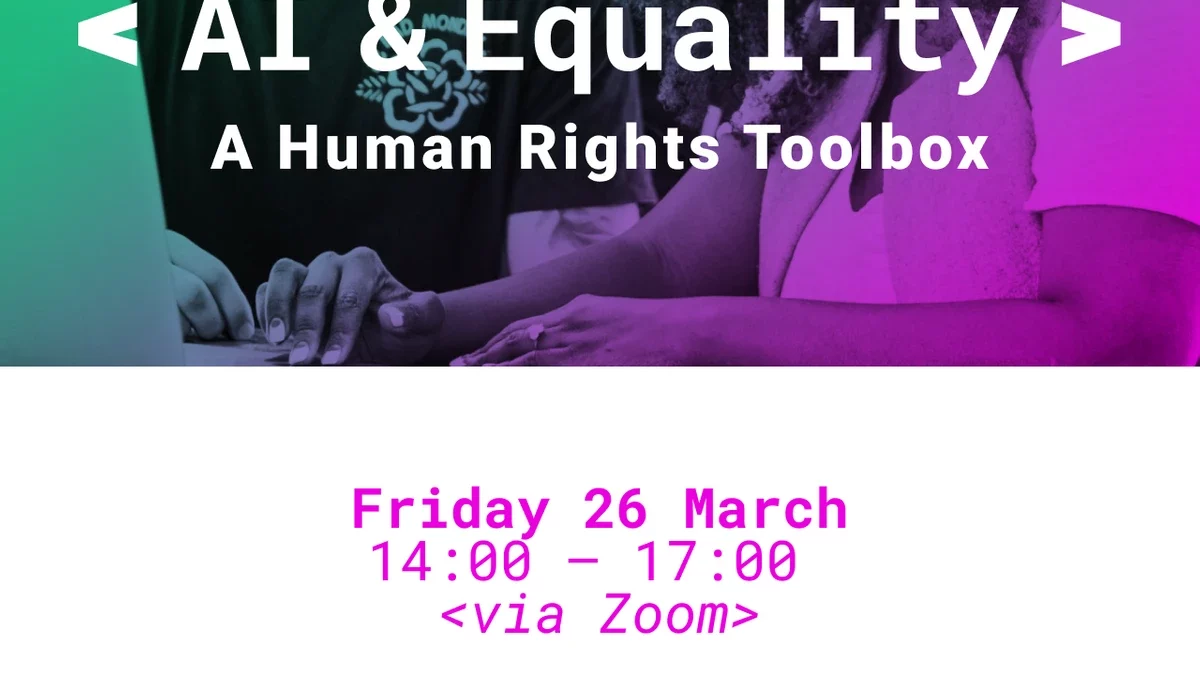In this crucial moment when AI is transforming every aspect of our lives and the very fabric of our society, it is clear that the design and deployment of AI must be grounded in human rights. Particularly urgent given the scale at which AI systems are being deployed, we need scientists, and engineers that understand the intersectional dimensions, and the implications their work has for all citizens, so that we all can thrive.
Last year, (see image below), we began our first workshop in collaboration with the Women’s Human Rights and Gender Section of the Office of the United Nations High Commissioner for Human Rights (OHCHR) and EPFL to look at why and where algorithms can produce inequality outcomes, why and where algorithms can be gender biased and how a human rights-based approach can be applied to computer algorithms that engage, reason about, and make decisions on people.

In 2021….
This year we are over the moon to take the workshops, now renamed
<AI & Equality> A Human Rights Toolbox
in order to further integrate concepts of intersectionality and bring our work to the next step drawing clear lines from human rights principles to code, with a unique blend of human rights law and data science.
Sofia Kypraiou, our 2021 <A+> Alliance Tech Fellow who holds a degree in Informatics & Telecommunications from the University of Athens, and is a final-year master’s student in Data Science at EPFL will be leading the data science charge and refining a unique Jupyter notebook with resources, wiki and website as her EPFL Masters Thesis exploring and enhancing this practical toolbox for AI and Human rights.
Jessica Pidoux, Doctoral Candidate at EPFL who holds a master’s degree in sociology of communication and culture from the University of Lausanne and is finalising her thesis on dating applications programming and user practices, will again lend her talents and research to the workshop and workbook efforts, all supervised by <A+> Advisory Board Member Daniel Gatica-Perez, who leads the Social Computing Group at Idiap and is a professor at EPFL affiliated with the School of Engineering and the College of Humanities. Hélène Fueger the head of EPFL’s Equality Office supports and co-hosts the project.
Critically, Asako Hattori, Human Rights officer from the Women’s Rights and Gender Section of the Office of the United Nations High Commissioner for Human Rights (OHCHR) will continue the work first begun together between Women at the Table and OHCHR in 2017, for the workshop planning and implementation in 2019 + 2020, building bridges of connection between human rights principles and the data we use, the code we write, and algorithms we make.
The first workshop will take place virtually 26 March, 1400-1700CET for EPFL and certain Swiss University students. A series of workshops are planned at other universities throughout Spring 2021.
Stay tuned for registration details and outcomes…..
Last modified: February 21, 2022
